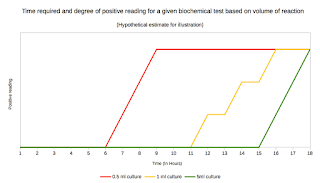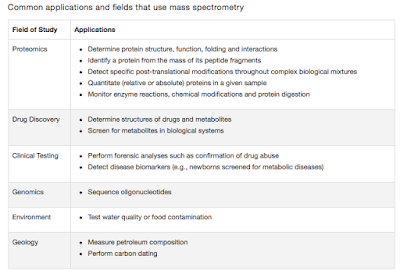Dead bacteria fights Lab model of Colorectal cancer
Greetings
One of the greatest focus on research in medicine is currently cancer treatment strategies with companies interested to shell out millions over research. However, it has been a very difficult to beat disease. Just like in the case of infections, cancer cells often turn out to become resistant to treatment drugs thanks to its ability to mutate too fast. Also, it has become clear in recent years that several infections such as oncogenic virus and some bacteria have a role in oncogenesis or development of cancer.
 |
| Table 1: Oncolytic viruses in development. Source |
Of late, one of the treatment strategies that has been tried and tested is a therapeutic called as Oncolytic virus therapy. Though this technology has a scope for improvement, recently one of them - Talimogene laherparepvec (T-VEC) which is a version of the herpes simplex virus (Officially known as IMLYGIC™) is approved by FDA for Clinical use in metastatic melanoma, raising hope for this strategy. There are several such viruses in current research (Shown in Table 1).
One of the top concerns in cancer research is colorectal carcinoma. With 1.4 million new annual cases worldwide, it stands one among the top in the world. The options for treatment is also quite low. Also in this case chemotherapy and radiotherapy don't work well due to hypoxic condition often seen in this particular tumour environment.
Scientists from Nanyang Technological University argued that the environment is right for growth conditions of anaerobic bacteria. Based on previous reports, they further argued that clostridium sporogenes which is known to accumulate near tumor cells is an excellent candidate. Being a proteolytic species, it can also cause cell death. But there is an issue. Once the infection is established, though tumor cells are rapidly killed it can cause frank infection which can be devastating. Recently, a study was conducted using C novyi strain against rat brain tumours and a variety of solid tumors in dogs. The success lead to a further human clinical trial on a patient with late-stage metastatic retroperitoneal leiomyosarcoma. Though tumor was downsized effectively, infective complications appeared which was managed with antibiotics.
Based on the above, heat killed C sporogenes was tested in a tumor model (3D tumor model), and found that within 72 hours, nearly 74% of the virus was destroyed. The team also tested bacterial secretions on tumor cells showing a significant effect. In a sense, the dead bacteria continues to secrete degrading compounds which is killing the cells. I see some problems that needs to be addressed here. It is not clear to me what the bacterial secretion include. So, it would be interesting to know what happens in context with normal cells. In case of alive bacteria, the tumor specificity of bacteria ensures sparing normal cells to an extent.
One of the author comments "“We found that even when the C sporogenes bacteria is dead, its natural toxicity continues to kill cancer cells, unlike the conventional chemotherapy drugs which need oxygen to work. While other research groups have experimented with bacteria therapy to destroy cancer cells, the biggest problem is that live bacteria will grow and proliferate, posing a high risk of infection and increased toxicity to patients. In our study, as the bacteria were already killed by heat, there was no risk of the bacteria multiplying and causing more harm than the desired dose meant to kill colorectal cancer cells". James Best, Dean of NTU says, “This is a significant discovery that potentially opens a new avenue to tackle this very common cancer, which is difficult to treat after it has spread. While it is early days, this exciting research finding provides hope of a new treatment option for millions of people affected by bowel cancer each year.” Source
Dolgin E (2015). Oncolytic viruses get a boost with first FDA-approval recommendation. Nature reviews. Drug discovery, 14 (6), 369-71 PMID: 26027526
Roberts NJ, Zhang L, Janku F, Collins A, Bai RY, Staedtke V, Rusk AW, Tung D, Miller M, Roix J, Khanna KV, Murthy R, Benjamin RS, Helgason T, Szvalb AD, Bird JE, Roy-Chowdhuri S, Zhang HH, Qiao Y, Karim B, McDaniel J, Elpiner A, Sahora A, Lachowicz J, Phillips B, Turner A, Klein MK, Post G, Diaz LA Jr, Riggins GJ, Papadopoulos N, Kinzler KW, Vogelstein B, Bettegowda C, Huso DL, Varterasian M, Saha S, & Zhou S (2014). Intratumoral injection of Clostridium novyi-NT spores induces antitumor responses. Science translational medicine, 6 (249) PMID: 25122639
Lokody, I. (2014). Anticancer therapy: Bacterial treatment for cancer Nature Reviews Drug Discovery, 13 (10), 726-726 DOI: 10.1038/nrd4447





Comments
Post a Comment